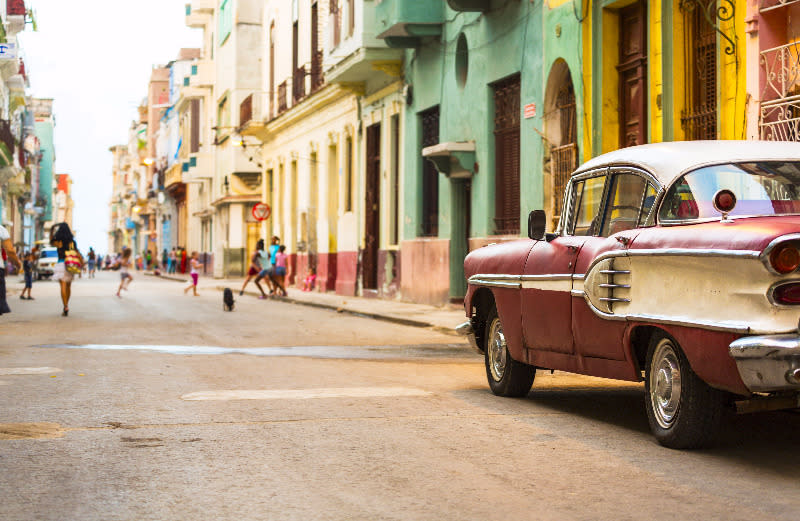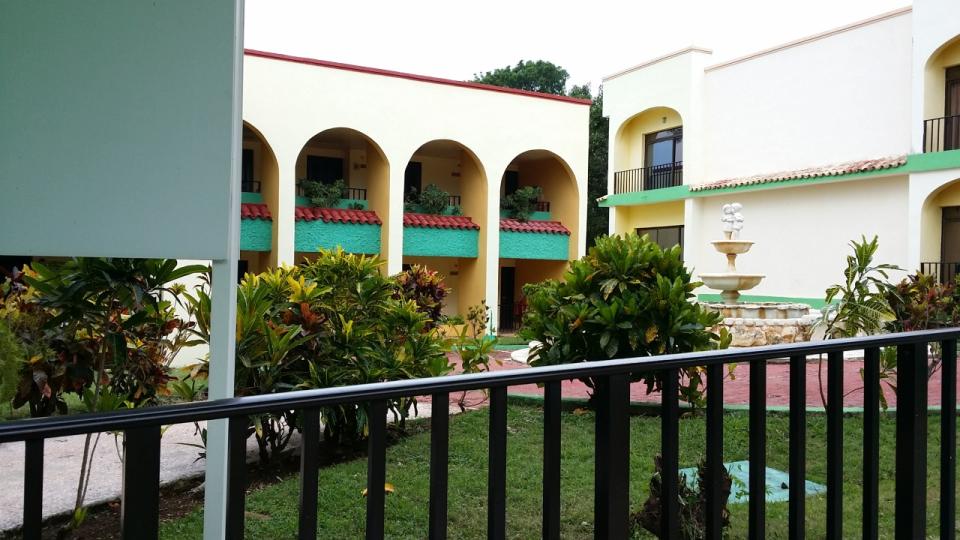Should You Go to Cuba for Cosmetic Medical Procedures?

Cuba may become the new hot spot for medical tourism. (Photo: Getty Images)
For the first time since 1961, relations between the United States and Cuba are thawing. This summer, diplomatic ties were officially restored. There’s still a long way to go – tourism is still not allowed for Americans (though there are some loopholes) – but within the next year that’s expected to change. While it means we’ll have another Caribbean island to visit for tropical vacations, Cuba boasts another popular industry: medical tourism. You can almost consider doctors and healthcare workers one of Cuba’s natural resources, thanks to medical colleges such as the Latin American School of Medicine in Havana, which produces thousands of graduates. But does that mean it’s safe to get a procedure done in Cuba? For starters, you need to do your homework.
There is approximately one doctor for every 150 citizens of Cuba, according to Rosemary Toscani, one of the founders of Global Health Quest, a Canadian medical tourism agency. She estimates that the company sends 60% to 70% of its clients to the tiny country for various medical treatments. Cuba also sends tens of thousands of doctors abroad, and even has a trade agreement with Venezuela. In exchange for trained physicians, the South American country sends Cuba oil.
Toscani says that her agency mainly sends clients to Cuba for non-invasive procedures, such as physiotherapy, cancer treatments, and addiction treatment. But Jonathan Edelheit, the CEO of the Medical Tourism Association here in the U.S., thinks that Americans will definitely look to the island nation as an alternative for less expensive aesthetic procedures. Americans are already traveling abroad for cheaper cosmetic fixes, especially to places such as Mexico, Brazil, Costa Rica, and the Dominican Republic, so it makes sense to add Cuba to this list.
“Cuba is a big destination for plastic and cosmetic surgery. It’s also big for eye surgery, like LASIK and glaucoma [procedures],” Edelheit says. “They get people from the Caribbean, Latin America, and lots of Russians and Canadians.” Toscani adds that treatments for skin disorders, such as psoriasis and vitiligo, and bariatric treatments for weight loss are also popular there.
Ben Soave, another co-founder of Global Health Quest, says, “There has been a definite increase of people going there. In our last conversation with [Cuban officials], they expect it to boom once the door to the U.S. opens, because of the proximity and because of the expertise and the excellent facilities and doctors they have.” It’s also really cheap, and everything from laundry to your therapy to food is included.

An actual hospital facility in Cuba. (Photo: Nadia Salhia)
But just because we can soon go there, should we? Especially for something elective, such as cosmetic surgery? Cuban doctors, who go through six years of medical school, are trained in acute care, but they also specialize in preventative care, an area that’s lacking in the U.S. It’s less clear what the training for specialists — such as plastic surgeons — is, and this is where your red flags should be flying.
While facilities and doctors there are accredited by Cuban government bodies, they obviously can’t be accredited by any American institutions. “There are other reputable organizations in other countries, such as Spain, that do accredit Cuban hospitals, and by extension, their doctors,” says Toscani. (It should be noted that in 2006, CNN reported that rather than being treated solely by Cuban physicians, Fidel Castro was also treated by a Spanish team of doctors that flew to Cuba with sophisticated medical equipment — take that how you will.) “If people are going to go down there for medical tourism, they have to be careful. You really have to do research and make sure the doctor has tremendous experience in that procedure, that the hospital is a quality place, and even get patient referrals where you can talk to some people who went there,” Edelheit warns. “It’s going to be hard.”
But thousands of patients do get treated there successfully, and Cuba sends its doctors all over the world, so obviously there is a level of quality, which Toscani, Soave and a host of other medical tourism agencies throughout the world vouch for. Edelheit also notes that hospitals here in the U.S. are eager for the borders to be open so that they can recruit Cuban doctors to work in the U.S., and to create partnerships with hospitals and clinics there. A representative for the American Association for the Accreditation of Ambulatory Surgery Facilities (AAAASF) says, “We don’t currently accredit any facility in Cuba, nor have we surveyed one, but we hope to after tensions are eased.”

A hospital facility in Cuba. (Photo: Nadia Salhia)
There’s the old adage, “You get what you pay for,” but in this case, you could actually be getting a legitimate bargain — at least for some therapies. Nadia Salhia, a Canadian who suffers from multiple sclerosis, went there for a month for intense rehabilitation therapy. Salhia says she arrived in a wheelchair and left walking. She estimates the total cost was about $6,000 for seven hours of daily therapy, a room, and food. The equivalent care in the U.S. or Canada would cost multiple times that. She describes the hospital she was in as “resort-like,” and calls the people “warm and loving.”
But there are definitely downsides. “Cuba is almost like traveling into a time warp,” says Salhia. “When you go there, they’re so far behind. And everything is on Caribbean time — slow! Everything is a process and has to be approved then approved again. They have Internet, but it’s shoddy. There are days without service.” Edelheit says that hospital directors are not allowed to talk to anyone from the “outside” without government permission.
This type of governmental control is precisely why it’s so cheap there. Doctors and nurses are paid a pittance. Edelheit says that pay is 90% less there than in the U.S. It’s an ethical consideration that should give you some pause. “The people working are not making much money, but the hope is that once relations normalize, that that would change, especially in the healthcare industry. But right now, it’s the government who’s making the money,” he says.
Going to a country for a cheap surgical procedure is always risky, and you have to take that into account, especially if you’re considering a boob job, tummy tuck, or other elective procedure. Dr. Herve Gentile, a Corpus Christi, Texas-based plastic surgeon, has dealt with his fair share of botched boob jobs performed in other countries. (To be fair, he has never had a patient from Cuba.) “When you’re dealing with medical tourism, if you have a complication, the surgeon has no incentive to see you anymore,” he warns. “He may not return calls. You don’t have any legal way to recoup your money.” Gentile says that often people are separated from their families while undergoing a procedure in a foreign country. The added cost of flying someone there with you could negate the cost savings. Gentile says he also has had issues with getting incomplete medical records from other countries.
Cuba is definitely going to be a promising destination for medical tourism, but experts say to wait and see how it all plays out. “It could be frustrating for a little while not being able to get to the right people, or not getting the answers you need to determine if you want to go there for care,” says Edelheit. “There is going to have to be some education and training because you’ve got cultural issues. There will definitely be some issues when it first opens up. I don’t think it is going to be smooth, but I think within a year, those issues can be worked out.”


